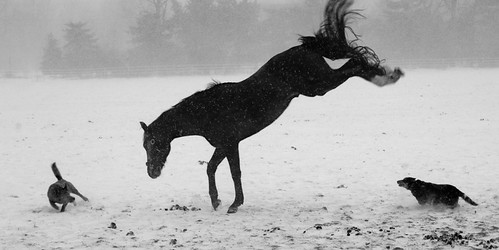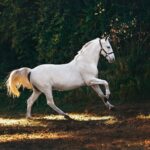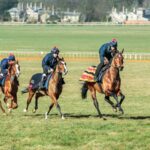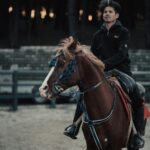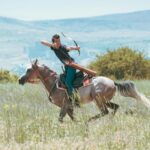In the equestrian world, certain horse breeds stand out for their exceptional courage and composure in challenging situations. These fearless equines possess remarkable mental fortitude, allowing them to remain calm and focused amid chaos that would send other horses into panic. Whether facing the noise and confusion of crowded events, navigating dangerous terrain, or performing under pressure, these breeds demonstrate an innate bravery that makes them invaluable partners for specific equestrian disciplines. Their temperament isn’t just a matter of training—although proper handling certainly enhances their natural qualities—but rather a product of selective breeding over centuries for specific purposes requiring courage and level-headedness.
Arabian Horses: Desert-Bred Courage
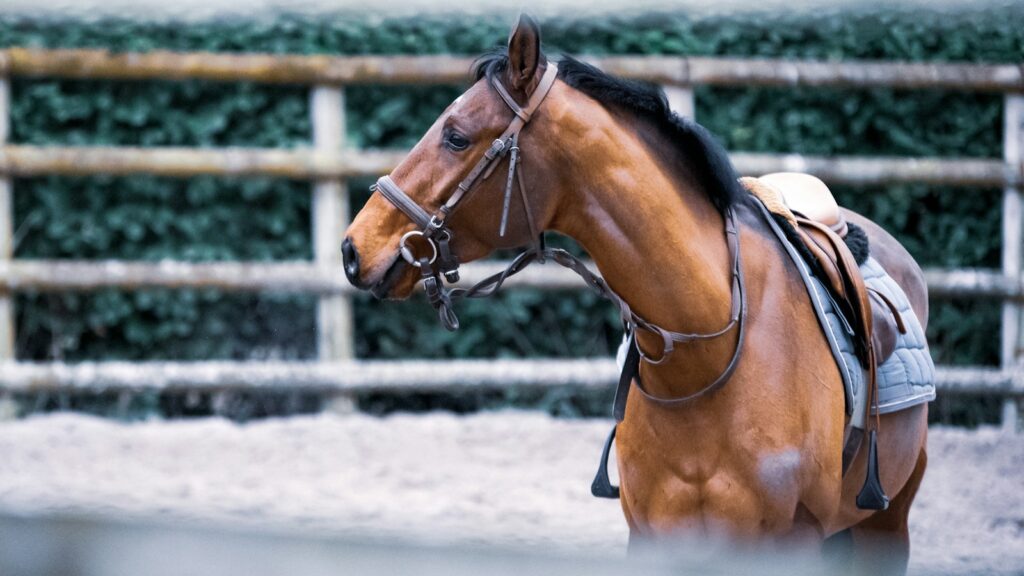
Arabian horses have been bred for thousands of years to thrive in harsh desert conditions, developing remarkable courage and endurance in the process. These horses faced sandstorms, predators, and warfare alongside their Bedouin owners, creating a breed with exceptional awareness and bravery. Modern Arabians retain these qualities, making them excellent mounts for endurance riding and competitive trail events where unexpected obstacles and challenging conditions are common. Their intelligence allows them to assess threatening situations quickly without defaulting to panic, a trait that made them historically valuable in battle and continues to serve them well in contemporary equestrian pursuits.
Quarter Horses: Unflappable Ranch Partners
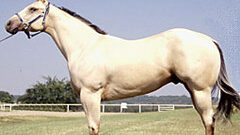
The American Quarter Horse earned its reputation for steadiness and courage through generations of ranch work requiring level-headed decision making. These horses regularly face unpredictable cattle, wild terrain, and changing weather conditions while maintaining their composure. Their characteristic “cow sense” demonstrates not just intelligence but fearlessness when working with unpredictable livestock that outweighs them significantly. Quarter Horses excel in high-stress competitive environments like rodeo events, where sudden movements, loud noises, and intense activity would overwhelm less courageous breeds. Their solid mental foundation makes them exceptional mounts for beginners and professionals alike, as they rarely spook at new objects or situations that might trigger flight responses in other horses.
Thoroughbreds: Bred for Competitive Courage
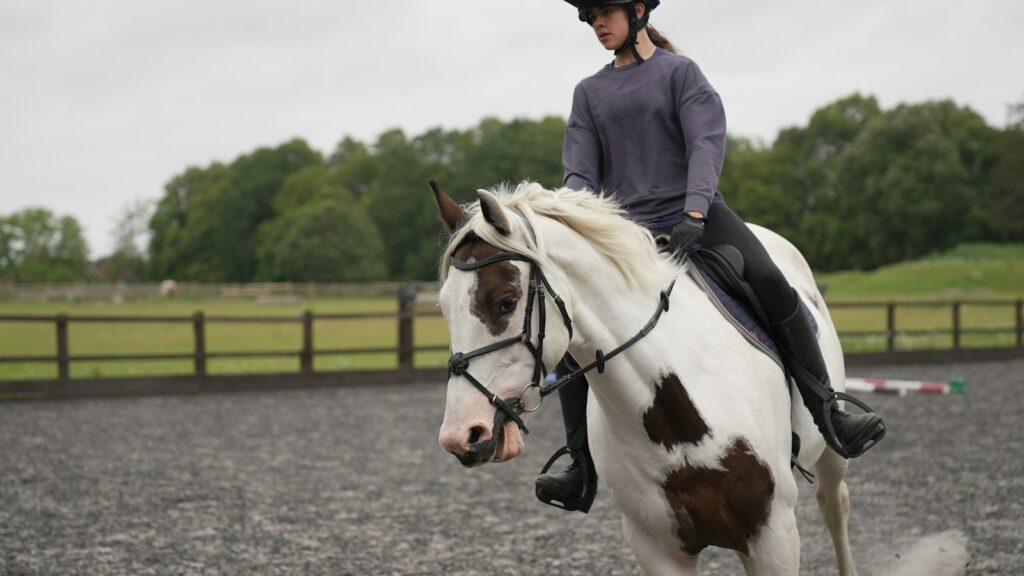
While often considered high-strung, quality Thoroughbreds demonstrate tremendous courage in properly channeling their athletic energy and competitive spirit. These horses routinely face the chaos of crowded starting gates, thundering hoofbeats, and the intense atmosphere of race days with remarkable focus. Their breeding emphasizes not just speed but the mental fortitude to drive forward even when physically exhausted, a form of courage essential to racing success. Beyond the track, Thoroughbreds excel in eventing and foxhunting, disciplines that require brave navigation of imposing obstacles and unpredictable terrain at speed. Their courage is particularly evident in their willingness to jump substantial fences without hesitation when properly trained and confidently ridden.
Andalusians: The Warrior’s Mount
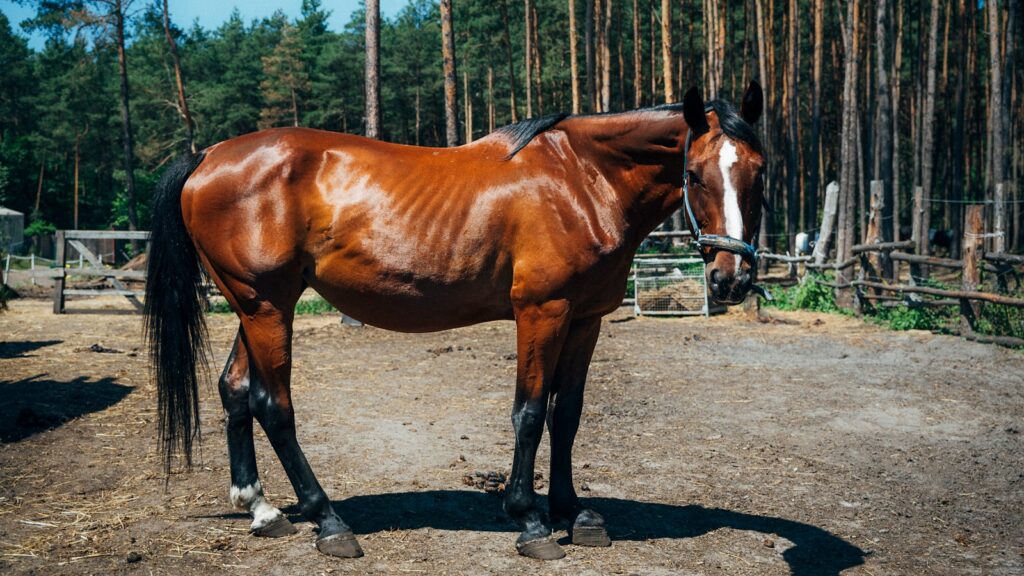
Spanish Andalusians have been prized as war horses throughout history, specifically selected for their courage in the face of battle chaos. Their breeders prioritized horses that would advance toward danger rather than flee, making them ideal for both warfare and, later, the bullring. Modern Andalusians retain this bravery, demonstrating exceptional composure during parades, ceremonies, and performances with crowds, music, and movement that would overwhelm many other breeds. Their natural collection and presence stem partly from their confident, forward-thinking mentality that assesses rather than fears new situations. This exceptional courage, combined with their intelligence and sensitivity to riders, makes them particularly valuable for classical dressage performances in stimulating environments.
Mustangs: Survival-Based Bravery
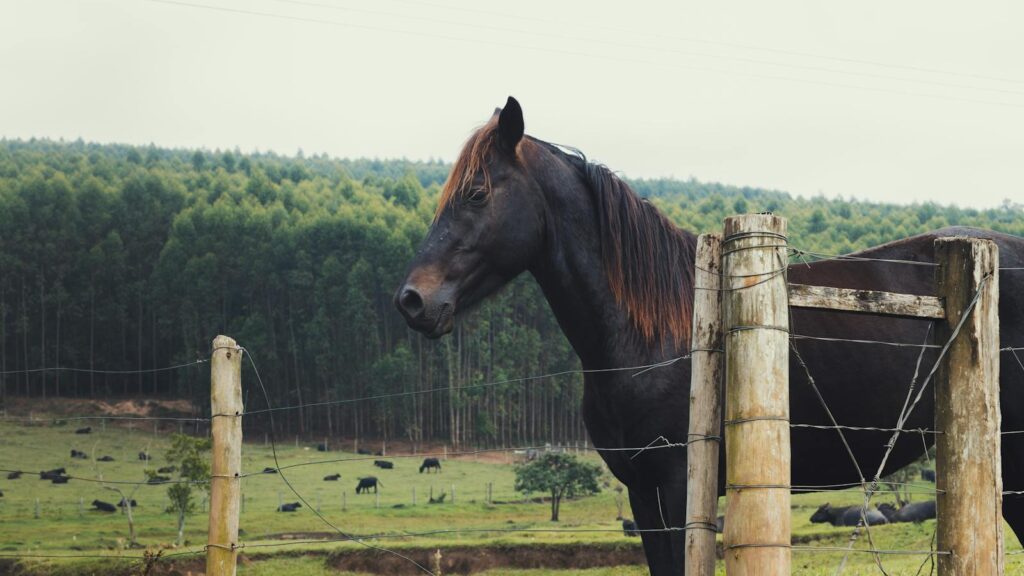
America’s wild Mustangs develop remarkable courage through natural selection in harsh environments where only the most adaptable survive. These horses face predators, territorial conflicts, and extreme weather conditions, developing keen assessment skills that translate to bravery under saddle once properly gentled. Their natural skepticism isn’t fear but rather calculated caution that, once earned through trust, transforms into exceptional partnership. Domesticated Mustangs often excel at challenging trail obstacles, competitive trail riding, and endurance events because of their survivalist background and problem-solving abilities. Their courage differs from domesticated breeds in that it’s based on real-world survival experiences rather than selective breeding, giving them unique perspectives on potential threats.
Appaloosas: Native American War Horses
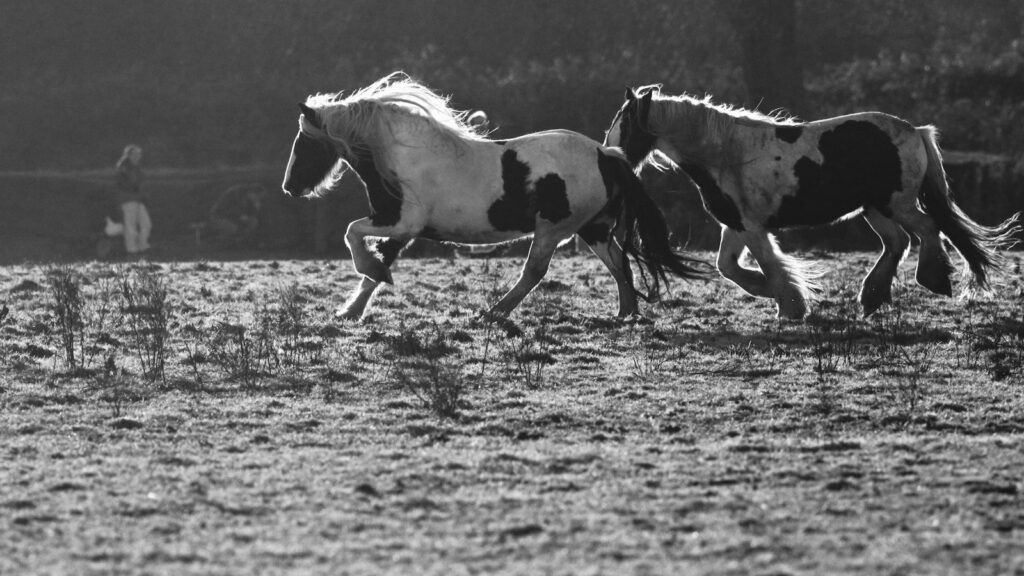
The Appaloosa breed was developed by the Nez Perce tribe specifically for courage in hunting and warfare, creating horses with exceptional bravery and intelligence. Their distinctive spotted coats were matched by their distinctive temperaments—level-headed, observant, and courageous when facing challenges. Historical accounts describe Appaloosas fearlessly carrying warriors into battle and demonstrating remarkable steadiness under chaotic conditions. Modern Appaloosas retain this mental fortitude, making them excellent choices for competitive trail riding, mounted shooting, and other disciplines requiring horses to remain calm amid noise and activity. Their courage is typically paired with strong independence and problem-solving abilities, making them ideal partners for riders who value thinking horses rather than purely reactive ones.
Irish Sport Horses: Cross-Country Courage
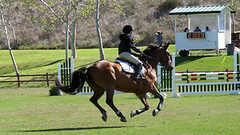
Irish Sport Horses, typically Thoroughbred and Irish Draught crosses, are renowned for their exceptional jumping courage and level-headedness on challenging cross-country courses. These horses willingly tackle massive obstacles, water complexes, and technical combinations that would intimidate most other breeds. Their courage is particularly evident in their willingness to jump “blind” fences where they cannot see the landing until committed to the jump. Irish Sport Horses consistently dominate international eventing competitions precisely because of their rare combination of athletic ability and mental fortitude. Their calm assessment of potentially dangerous situations stems from generations of breeding for foxhunting across Ireland’s challenging terrain in all weather conditions.
Percherons: Gentle Giants with Battlefield History
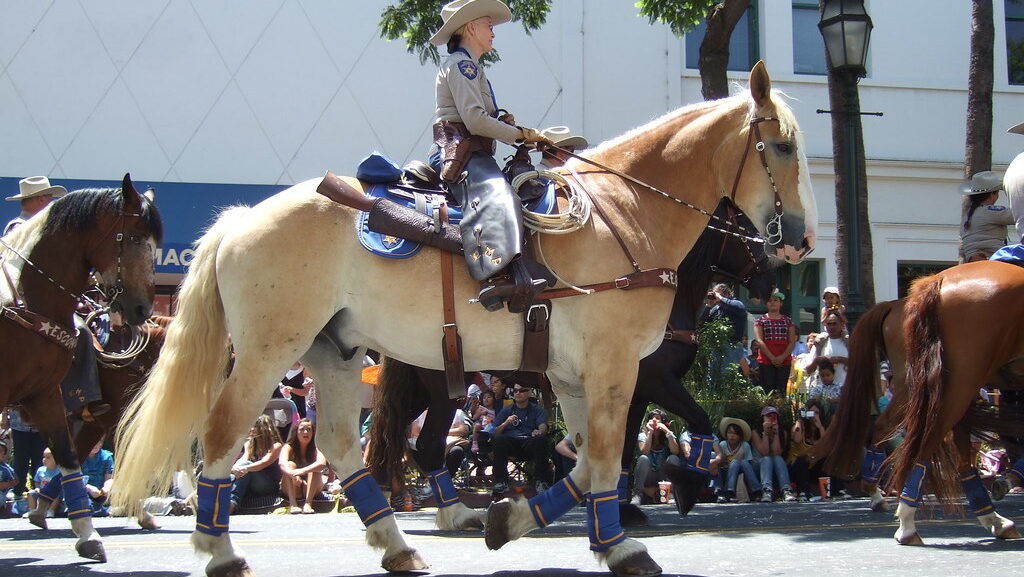
Percherons originated as medieval war horses, carrying knights in heavy armor into battle, requiring exceptional courage amid chaotic fighting conditions. Their evolution continued through use in military campaigns across Europe, where their steadiness under fire proved invaluable. Despite their imposing size, Percherons display remarkable gentleness combined with courage that makes them trustworthy in parades, urban environments, and other potentially overwhelming situations. Modern Percherons serve as police horses in many major cities specifically because of their ability to remain calm during protests, celebrations, and other high-stimulus events that would trigger flight responses in more reactive breeds. Their courage is particularly notable given their size, as larger horses typically have more pronounced flight instincts due to their higher center of gravity.
Morgan Horses: American-Made Bravery
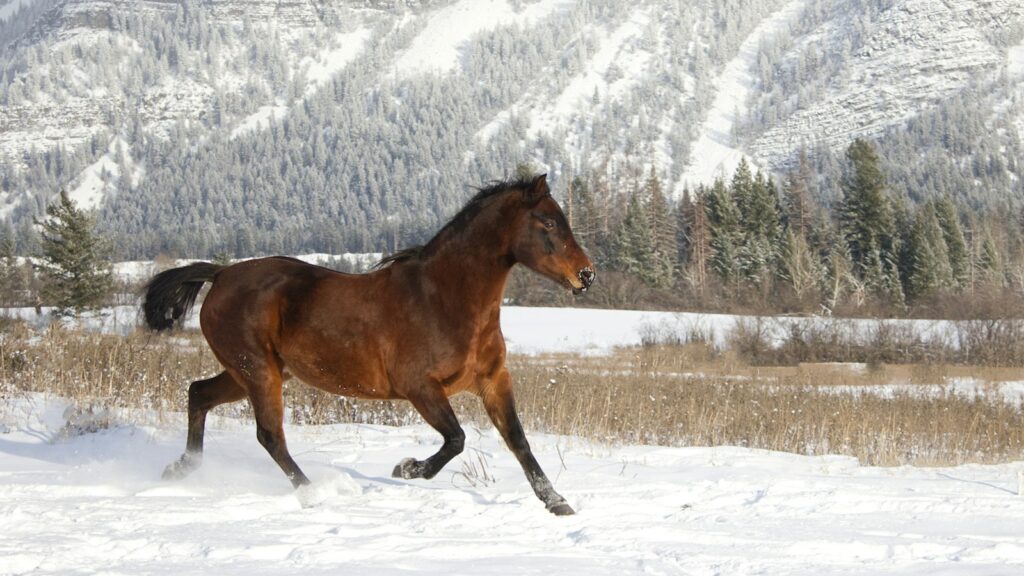
The Morgan breed traces to a single foundation sire known for exceptional courage and versatility, traits that remain hallmarks of the breed today. These horses served admirably as cavalry mounts during the American Civil War, where their bravery under fire and adaptability to difficult conditions proved invaluable. Modern Morgans demonstrate their fearlessness in diverse disciplines ranging from competitive driving to trail riding through challenging wilderness terrain. Their courage is typically accompanied by exceptional intelligence and problem-solving abilities, allowing them to assess rather than react to potentially frightening situations. The breed’s remarkable self-confidence translates to willing partnership with riders, even when facing new or intimidating challenges.
Fjord Horses: Viking-Era Fearlessness
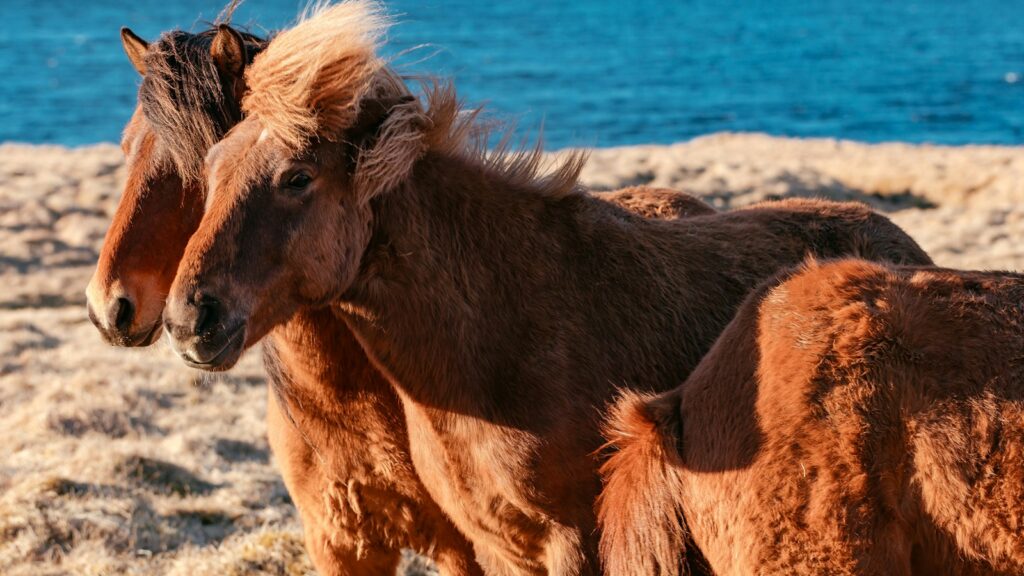
Norway’s Fjord horses have navigated treacherous mountain terrain for over 4,000 years, developing exceptional sure-footedness paired with remarkable courage. These horses routinely faced harsh weather conditions, predators, and challenging landscapes that required level-headed assessment rather than panic. Their Viking heritage included sea travel, with these horses loaded onto small boats to cross rough waters—a test of courage few modern horses would pass. Contemporary Fjords maintain their ancestral bravery, making them excellent choices for therapeutic riding programs where unpredictable situations might occur. Their courage manifests not as flashy boldness but as steady reliability, consistently approaching new situations with curiosity rather than fear.
Akhal-Teke: Desert Warriors with Metallic Shine
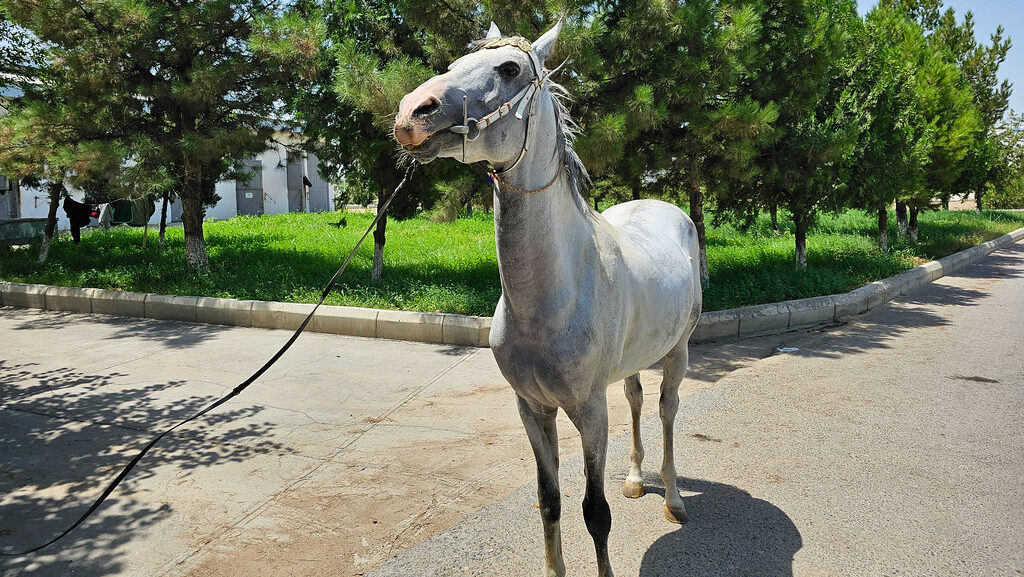
The ancient Akhal-Teke breed from Turkmenistan developed extraordinary courage through their use as raiding horses across harsh desert landscapes. These horses routinely undertook journeys with minimal water and food, facing sandstorms and temperature extremes that required exceptional mental fortitude. Historical accounts describe their bravery in battle, carrying warriors against better-equipped forces with unflinching determination. Modern Akhal-Tekes maintain their ancestral courage, demonstrating exceptional focus and composure in endurance competitions and challenging trail situations. Their courage often manifests as remarkable loyalty to a single rider, forming partnerships of extraordinary trust that allow them to face challenges that would overwhelm other breeds.
Mules: Hybrid Vigor Creates Exceptional Stability
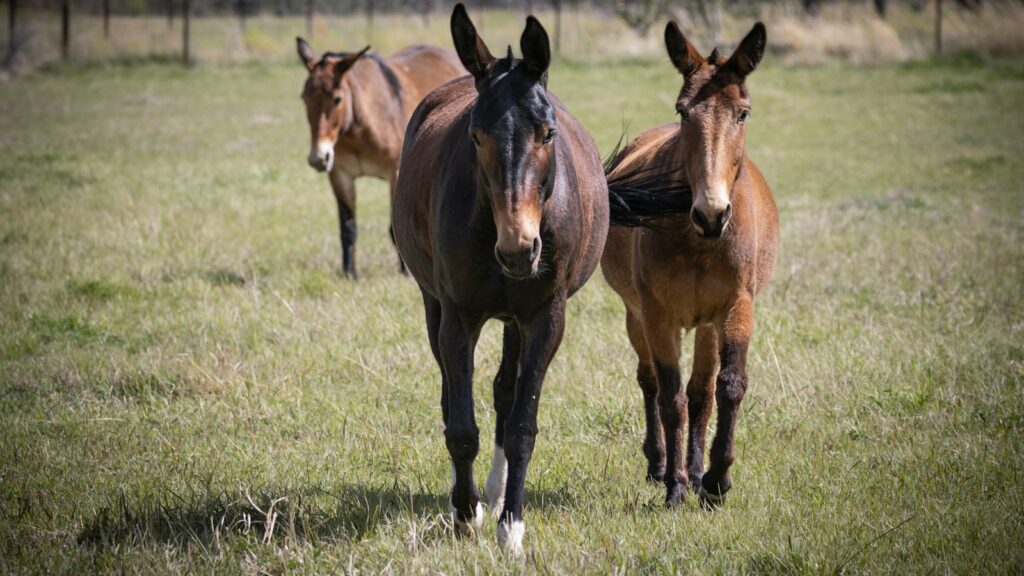
While not a horse breed, mules—crosses between horses and donkeys—deserve mention for their exceptional courage and level-headedness in chaotic situations. These hybrids inherit the horse’s athleticism and the donkey’s incredible self-preservation instincts, creating animals that assess danger intelligently rather than panic reflexively. Military organizations worldwide have utilized mules for centuries specifically because of their ability to remain calm in battle conditions and navigate treacherous terrain with careful consideration. Modern mules excel in disciplines like competitive trail riding, packing in wilderness areas, and even show jumping, demonstrating courage paired with exceptional intelligence. Their reputation for stubbornness reflects thoughtful assessment rather than fear, as they typically refuse situations they’ve determined are genuinely dangerous rather than merely scary.
Developing Courage in Any Horse Breed
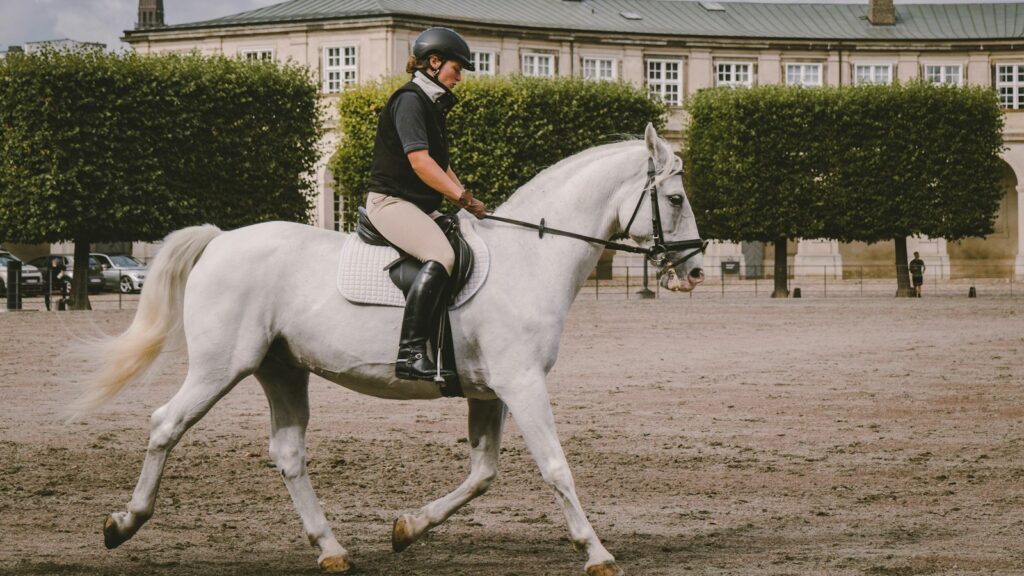
While certain breeds possess genetic predispositions toward courage, proper training significantly enhances any horse’s ability to handle chaos calmly. Progressive desensitization, introducing potentially frightening stimuli gradually while the horse remains calm, builds confidence through positive experiences. Confident, consistent handling by riders who remain calm themselves during challenging situations helps horses develop trust that translates to courage when facing new challenges. Exposure to varied environments during a horse’s developmental years—particularly between six months and three years of age—creates neural pathways that support adaptability and reduced reactivity later in life. Even breeds not traditionally known for courage can develop remarkable steadiness through patient, progressive training that builds their confidence rather than punishing fear responses.
Conclusion
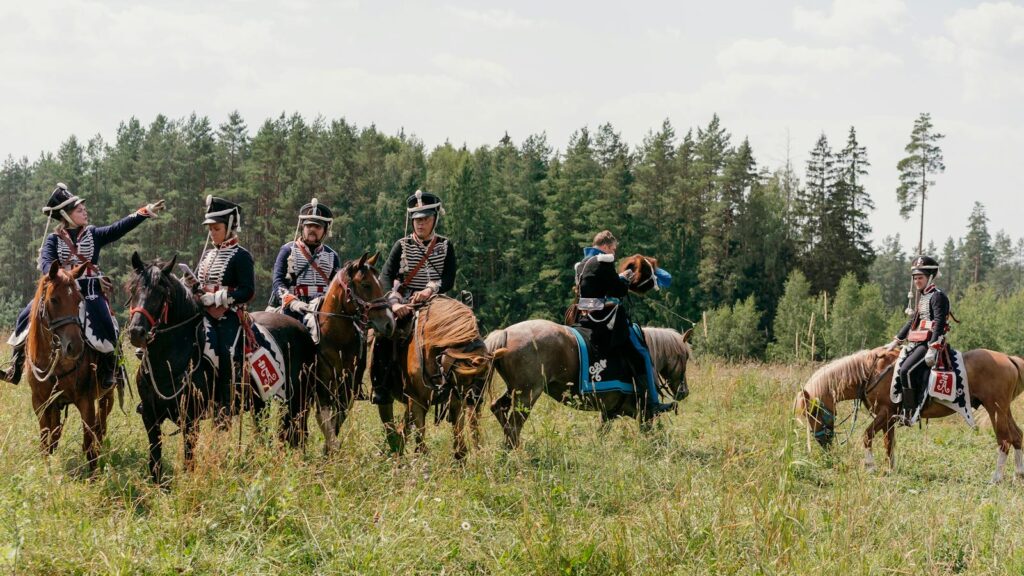
The most fearless horse breeds have earned their reputations through centuries of selective breeding for specific purposes requiring exceptional courage. From battlefield chaos to competitive pressure, these equines demonstrate remarkable mental fortitude that sets them apart from more reactive breeds. While genetics provide the foundation for equine courage, proper training and handling remain essential for developing these natural tendencies into reliable composure under pressure. For riders seeking partners for high-pressure disciplines or those simply wanting a dependable mount for unpredictable situations, these breeds offer natural advantages worth considering. Their ability to assess rather than merely react to potential dangers makes them invaluable partners for humans across countless equestrian pursuits.

